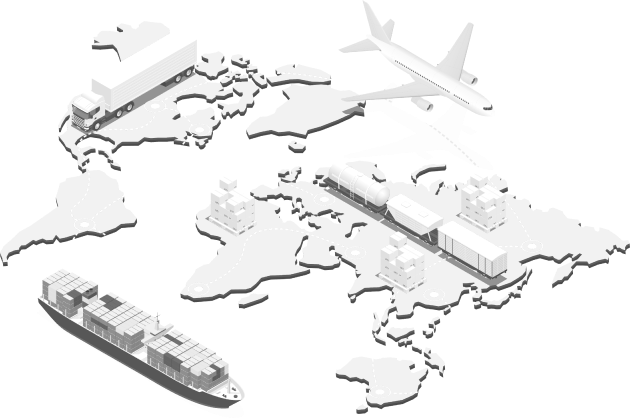When consumers board an airline flight from Miami to Amsterdam or Los Angeles to New York, they’re typically asking only these questions: “How crowded is the cabin? Does the plane have Wi-Fi? I wonder if I’ll get something to eat or drink”
Yes, they also know their bag is heading into the cargo hold, but they don’t really concern themselves with what else is being carried in that space – so called “belly cargo.”
Critical to the airlines’ flight revenues, though, belly cargo is a favorite method for businesses to ship goods from Point A to Point B in a timely and reliable manner. Pre-pandemic, in 2019, it is estimated that 47 percent of all air cargo was belly cargo – carried within the holds of regularly scheduled passenger airline flights. In turn, 53 percent was air freight, carried aboard dedicated all-cargo aircraft, called air freighters.
Belly Hold Cargo
During the height of the pandemic however, passenger flights dropped significantly or even halted totally. Now that’s reversing. “Fortunately, as airlines reintroduce more passenger flights and increase key route frequencies in 2022, our clients have more belly hold cargo options for shipping their goods,” says Yulieth Onofre, sales manager of Prime Logistics Group, an experienced logistics firm based in Miami.
The numbers show that belly cargo is soaring in use. During March 2022, Vienna International Airport reported strong tonnage increases for belly cargo on scheduled passenger flights – up 54 percent in January 2022 and 48 percent in February 2022, versus the same months in 2021.
“Ecommerce growth is driving much global demand for belly capacity,” believes Onofre, adding that Prime Logistics uses many veteran airline partners to ship clients’ belly cargo.
Certainly, shippers have much to cheer about right now with more flight options. In April 2022, United Airlines announced that it was offering the most robust summer transatlantic season in its history, an expansion with 30 new or resumed flights. So, its airline network will be 25 percent larger than in 2019.
One shift this year, though, is that many airlines are often positioning smaller aircraft on routes once served by larger aircraft; that can impact belly hold cargo capabilities. Crew shortages due to COVID-19 illnesses have also hampered some airlines in their return to service. “But while it’s an evolving ‘airscape,’ shippers are generally in a better position with belly cargo options than during 2020 and 2021,” says Onofre.
Making the Right Choices
Prime Logistics also ships clients’ goods via truck, rail, and ocean ships, as well as within air freighters (dedicated all-cargo planes). Air freighters can transport hefty loads – everything from large machinery to building materials and even thoroughbred racehorses. In April 2022, Emirates SkyCargo reported that it had shipped more than one billion doses of Covid-19 vaccine doses globally.
Prime Logistics’ skilled employee teams of experienced logistics experts will work ‘round the clock to assist clients in handling and shipping their cargo. Onofre stresses that wise shipping decisions are made based on the client’s budget, timing, shipment consignment weight and measurements, plus the nature of products being shipped.
For example, are the goods being shipped as belly hold cargo permitted on a passenger aircraft per the International Air Transport Association’s (IATA) security regulations? And, “for belly hold cargo, can the goods secured on pallets fit within the aircraft contours,” Onofre asks? “But clients can rest easy as our experts will help them sort it all out.”
About Prime Logistics Group
One of four divisions of Prime Group, an international logistics services conglomerate founded in Ecuador in 2001, Prime Logistics Group serves to streamline, optimize, and expedite freight to and from the U.S. for a wide range of major industries.
With offices in Miami, New York, Los Angeles, Bogota, Quito, and Amsterdam, Prime Logistics capitalizes on its long-time relationships with the major air carriers and ocean lines to offer competitive rates in securing ample space to destinations all around the world.
For information, call 305-592-2044 or visit WWW.PRIMELOGISTICSGROUP.COM.



